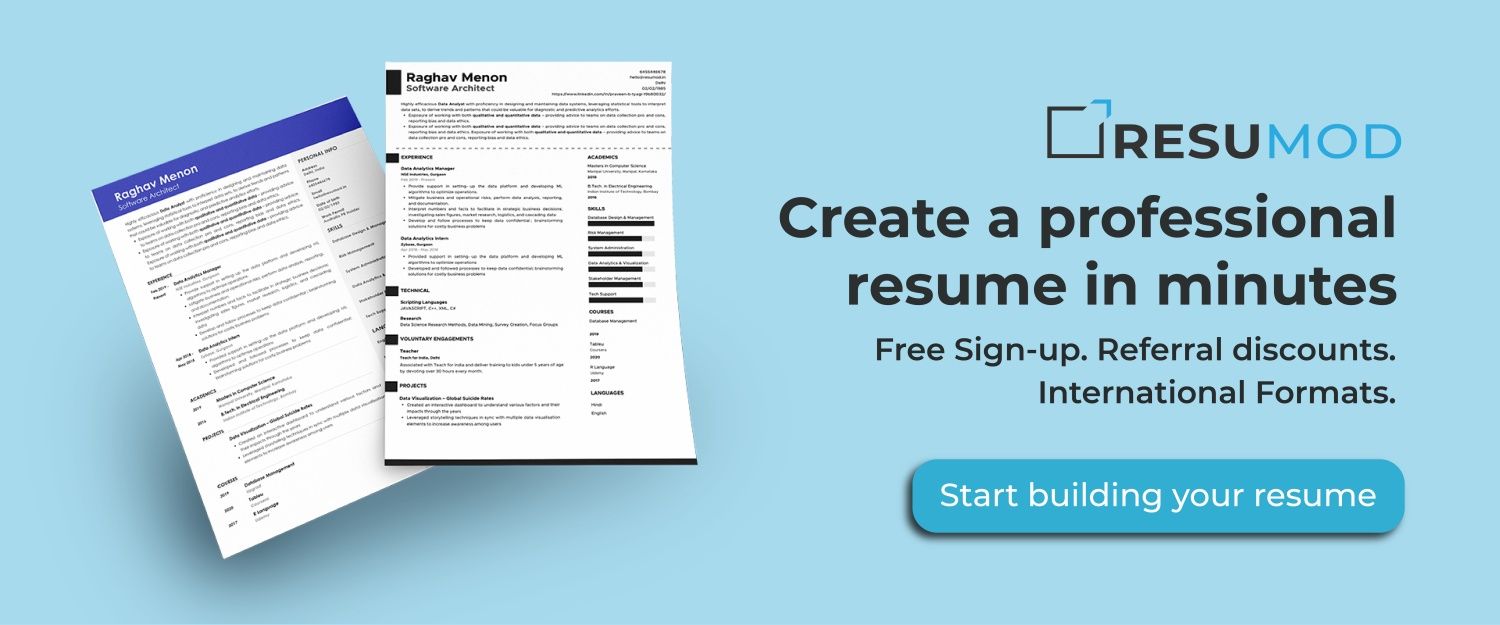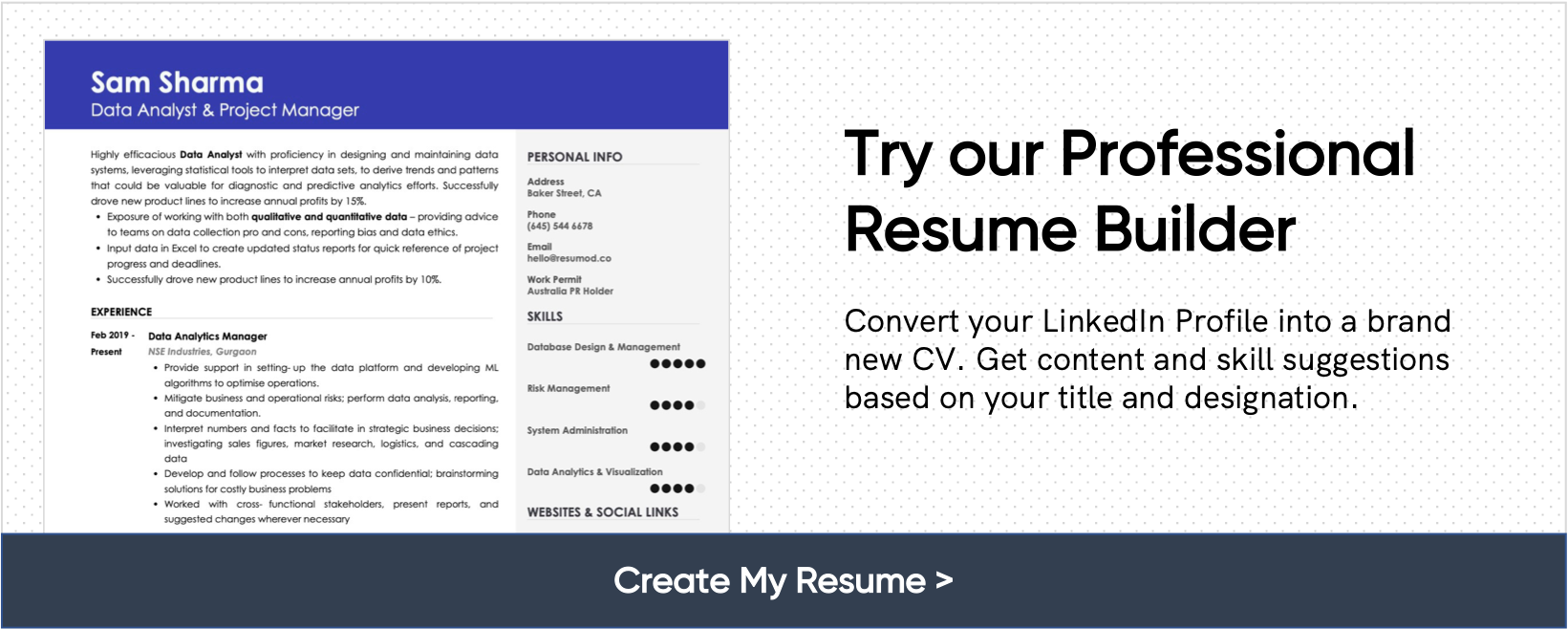How to Become a Project Manager - A Guide for 2024
A Project Manager is not just a designation but it’s a commitment to be multi-talented as it involves both hard and soft skills.
In the current job landscape, project management is believed to be the most valuable skill set. However, there’s a persistent talent gap in the field indicating the shortage of candidates with the right skills to meet the demand for Project Managers.
The role of Project Manager comes with a rewarding experience as they are responsible for every facet of a project - from parcelling out tasks to picking materials. A Project Manager is not just a designation but it’s a commitment to be multi-talented as it involves both hard and soft skills. If you have an interest in the field of project management, it can be helpful to learn about how you can prepare yourself for the career, as this can help you secure the necessary qualifications.
In this blog post:
- What does a project manager do?
- How to become a project manager?
- Skills for a project manager
- What do project manager qualifications mean?
- Importance of project management in different industries
- Who can become a project manager?
- Interview questions for project managers
- Top-rated project management resumes on resumod
What Does a Project Manager do?
Project Managers have to be multi-talented as they are handling multiple responsibilities at once, but their primary focus is to plan, secure, and oversee the execution of a project. Project Managers tend to work in various industries as their skills in overseeing teams and processes can be valuable in various kinds of workplaces. As a Project Manager, you have to perform the following tasks:
- Develop ideas and turn them into actionable project plans
- Develop a plan of action for the project and create detailed tasks to complete
- Monitor a team that handles project tasks
- Supervise project teams and comprehend the team members about the tasks
- Work with different stakeholders that the project might affect
- Handle the monetary aspects including the project budget
- Train and coach team members to perform to the best while working on a project
- Submit the completed project to managers or clients
How to Become a Project Manager?
Numerous paths can be followed if you are planning to become a Project Manager. Study project management principles in a Management School and apply directly to project management positions after graduation or find a way to become a Project Manager after taking on more responsibilities in the current role or switching from another field. Whatever path you choose to take, there are five steps to consider before becoming a Project Manager.
Step 1: Understand your project management skills
Do you have experience in planning, budgeting, scheduling, or documenting the progress of a project? Did you organise an event in a previous job or try new ways to make your workplace more efficient? Though it might not look like a project management role at the time, your past experiences include some exposure to the skills you will need as a Project Manager.
This kind of experience implies that you may be ready to apply for a Project Manager position. If you have three years of working experience, you are also eligible to apply to take the Project Management Professional (PMP) certification exam, which will create opportunities for you in the project management world.
Step 2: Build project management experience
Many Project Managers start in a non-managerial role in the team. For instance, IT Project Managers work for several years as IT associates or as business analysts who support the IT team. Their roles gradually expand with the industry expertise and they take on managerial tasks, developing organisational skills, and learning to work with the members of their team.
Try looking for opportunities in your current role so you can gain project management skills as chances are several items need to be planned, executed, or improvised. Approach your manager with ideas for your contribution and let them know you are interested in developing project management experience.
Develop project management skills
It will be a good start to sharpen your technical and workplace skills that involve in project management. Some commonly requested skills in Project Manager job descriptions include
- Risk management
- Budgeting
- Agile project management
- Waterfall project management
- Scrum
- Communication
- Leadership
Develop these skills by taking specific courses in a subject, studying for a certification, or practising them while working.
Look for entry-level positions
Apart from working your way within a team is not the only way but many choose to get their start in entry-level organisational positions as they build key skills. Some of these titles in your search should be:
- Project Coordinator
- Operations Coordinator
- Associate Project Manager
- Junior Project Manager
- Operations Associate
- Administrative associate
Consider a Project Management Certification
A certification or certificate can help get into the world of project management jobs. Some are:
- Certified Associate in Project Management (CAPM)
- Google Project Management: Professional Certificate
- Project Management Professional (PMP)
- Certified Scrum Master
- Professional Scrum Master I (PSM I)
- ICAgile Certified Professional (ICP)
Skills for a Project Manager
Project Managers are known to be the master of both hard and soft skills and which skills will dominate depends on the particular industry they're working in. Some of the skills that most successful managers share include:
- Leadership: They lead and motivate teams of people to work towards a common goal. It requires strong leadership skills, like the ability to delegate tasks, offer guidance, and create a positive work environment.
- Financial management: Project Managers manage the budget for a project and need to have strong financial management skills so they can allocate the resources effectively and the project stays within budget.
- Decision-making: Project Managers should be able to make quick and effective decisions, even when they are under pressure. They should be able to look through the pros and cons to make informed decisions so the project keeps moving forward.
- Team-building: Project Managers have to build and manage the teams effectively. It requires them to select qualified people, manage conflicts, and create a productive team dynamic.
- Time management: Project Managers ensure that the project stays on track and manage it effectively. It includes prioritizing tasks, delegating effectively, and making the most of available resources.
- Communication: Effective communication with stakeholders is a daily routine for Project Managers and they should be able to convey complex information clearly and resolve conflicts.
- Critical thinking: Project Managers have to analyse complex situations and make informed decisions. They identify potential problems and develop effective solutions to keep the project moving forward.
- Negotiating: Negotiating with stakeholders, suppliers, and team members is essential as it ensures that everyone is on the same page. Project Managers ensure to find mutual solutions and resolve conflicts.
- Quality management: They ensure that the project doesn’t compromise on quality and if there exists any issue then measures are implemented to see that quality control processes are in place.
- Risk management: Project Managers understand the business risks and make conscious decisions about them.
What Do Project Manager Qualifications Mean?
According to experts the Project Manager's qualifications change with time and depend on the business and the role they’re hiring for. A qualified Project Manager has the temperament, skills, and experience required for the position. Typical requirements include at least three years of experience in a related role, communication skills, formal training, and a PMP certification. Certification can be earned through a professional association, through a specially focused online learning program, or a university or college.
Importance of Project Management in Different Industries
Project management is a crucial role and varies from industry to industry serving as a necessary framework for planning, executing, monitoring, and completing projects proficiently. The importance of project management is complex and it extends to diverse sectors.
Resource Optimization
- Time Management: Competent project management ensures the prevention of delays, optimal use of time, and timely project delivery.
- Cost Control: It helps control and allocate resources efficiently, minimizes unnecessary expenses, and stays within budget constraints.
Risk Mitigation
- Identifying Risks: It also involves a thorough risk assessment, identifying potential challenges, and developing strategies to mitigate them.
- Contingency Planning: Contingency plans are about addressing unforeseen issues, and reducing the impact of risks on project outcomes.
Quality Assurance
- Standards Adherence: Managers ensure that projects adhere to industry standards, which enhances the quality of deliverables.
- Continuous Improvement: Feedback mechanisms are meant to facilitate continuous enhancement, that ensures lessons learned from one project are applied to future endeavours.
Stakeholder Collaboration
- Communication: Effective communication means nurturing collaboration in the teams, including stakeholders and clients.
- Expectation Management: Clear communication manages stakeholder expectations, reduces the likelihood of misunderstandings, and improves project satisfaction.

Strategic Alignment
- Alignment with Organizational Goals: Project management ensures that projects align with the strategic goals and objectives of the organization, resulting in success.
- Prioritization: It helps in prioritizing projects based on their strategic importance, which ensures resources are allocated to initiatives that align with the company's vision.
Innovation and Creativity
- Structured Innovation: Project management frameworks encourage planned approaches to innovation and creativity within defined project boundaries.
- Problem-Solving: A systematic approach to problem-solving encourages the teams to find innovative solutions within project constraints.
Customer Satisfaction
- Meeting Requirements: Project management ensures that projects meet or exceed customer requirements, which enhances overall satisfaction.
- Feedback Incorporation: Continuous feedback loops in project management allow for the amalgamation of customer input, which leads to products or services that better meet their needs.
Adaptability to Change
- Change Management: Project management methodologies integrate change management practices, that allow teams to adapt to project requirements.
- Flexibility: Agile project management methodologies emphasize adaptability, which enables the team to respond to changing priorities and customer needs.
Who Can Become a Project Manager?
Every profession comes with managing some kind of project and this is how many Project Managers start their journey. So, when it comes to criteria for the role, there is not a definite one, although professionals looking for full-time careers in the same can take project management training and certificates to initiate their journey. The following professionals take project management certifications:
- Project Executives
- Associate/Assistant Project Managers
- Project Managers
- Team Leads/Team Leaders
- Process Managers
- Software Developers
Interview Questions for Project Managers
To stay ahead in the game, you can prepare your responses to the common management interview questions. Make sure you have solid examples to demonstrate your suitability for the role when asked these specific project management interview questions:
- What project management methodologies are you most familiar with?
- What are the most important qualities of a Project Manager, and why?
- How do you plan a schedule for a project?
- How do you allocate resources?
- How do you ensure your team stays on track to meet project deadlines?
- How do you motivate a team?
- Two key stakeholders have opposing views. How do you manage this?
- How do you approach risk management on a new project?
- What did you find most challenging about your last project?
- Have you worked on a project that failed? What happened?
- What is the most complicated project you have managed? How did you handle it?
- What was your most successful project?
5 Tips to Write a Project Manager Resume
A great resume is a way to get the interview call and this is the first step to advance your career in project management.
- Be Short, Clear, and Concise: A resume isn’t a novel and you are not looking for plot development. Just state the facts and keep your information to the point.
- Align Your Project Manager Resume with the Job Description: Look at the role and its responsibilities for the role you are applying for and map your resume directly to the how, when, and what you’ve done according to it. This includes having a targeted LinkedIn profile, as recruiters are always on the site for leads.
- Use Project Management Keywords: Every job recruiter looks for the keyword in the resume and even the software they use to locate candidates uses the industry-specific keywords that they’re seeking. As a seeker of a Project Manager role, even if you had a different title for the previous job, write your title as a Project Manager in your resume to match the desired language.
- Highlight Your Project Management Skills and Achievements: Make sure your resume has everything the employer needs for the position and let them know about your previous work, so they know the kinds of projects you’re able to manage as a project leader. If you achieved something noteworthy, then you need to let people know.
- Keep Your Resume Updated: Review your Project Manager resume even if you aren’t looking for a new job. Always keep it updated with new skills and this applies to your LinkedIn and other job portals too. If you’re regularly earning certifications, then be sure to mention it in your resume.
Top Rated Project Management Resumes on Resumod
Resume of Technical Project Manager

Check the full resume of technical project manager in text format here.
Resume of Business Analyst and Project Coordinator with Career Break

Check the full resume of business analyst and project coordinator with career break in text format here
Resume of e-Commerce Project Manager

Check the full resume of e-commerce project manager in text format here.
Resume of Oracle EBS Projects Application Lead

Check the full resume of Oracle EBS projects application lead in text format here.
Resume of Agile Project Manager

Check the full resume of agile project manager in text format here.
The Bottom Line...
There are several paths that you may take to become a project manager. Whether you start from scratch or try to solidify your skills after a few years of experience, you might want to make sure you have your basics covered. Earning an advanced degree or new certificate can help you land your first project management role. Once you get it then make sure you stay on top of emerging technologies, trends, and methodologies to thrive in the role.



